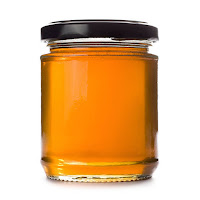-
Bohaterstwo, które podziwiał świat. „W..
POLSKA2 lata temu -
Neon24 – ruska V kolumna
POLSKA3 lata temu -
Nowe osoby w Zarządzie Amiblu
BIZNES3 lata temu -
Mechanizm warunkowości – krok ku Homo Eu..
POLSKA3 lata temu -
Wściekłe i wulgarne „Lemparcice” ..
POLSKA4 lata temu -
Rolnicze poparcie dla prezesa Elewarru – ..
NEWS4 lata temu
Guy Wetmore Carryl:“Obludny lis i latwowierny kruk”

Na drzewie siedzial kruk i slowa
Nie wyrzekl, bowiem trzymal w dziobie …
And not a word he spoke, for
His beak contained a piece of Brie,
Or, maybe, it was Roquefort:
We’ll make it any kind you please—
At all events, it was a cheese.
Beneath the tree’s umbrageous limb
A hungry fox sat smiling;
He saw the raven watching him,
And spoke in words beguiling.
“J’admire,” said he, “ton beau plumage.”[1]
(The which was simply persiflage.)
Two things there are, no doubt you know,
To which a fox is used:
A rooster that is bound to crow,
A crow that’s bound to roost,
And whichsoever he espies
He tells the most unblushing lies.
“Sweet fowl,” he said, “I understand
You’re more than merely natty,
I hear you sing to beat the band
And Adelina Patti.
Pray render with your liquid tongue
A bit from Götterdammerung.”
This subtle speech was aimed to please
The crow, and it succeeded:
He thought no bird in all the trees
Could sing as well as he did.
In flattery completely doused,
He gave the “Jewel Song” from Faust.
But gravitation’s law, of course,
As Isaac Newton showed it,
Exerted on the cheese its force,
And elsewhere soon bestowed it.
In fact, there is no need to tell
What happened when to earth it fell.
I blush to add that when the bird
Took in the situation
He said one brief, emphatic word,
Unfit for publication.
The fox was greatly startled, but
He only sighed and answered “Tut.”
The Moral is: A fox is bound
To be a shameless sinner.
And also: When the cheese comes round
You know it’s after dinner.
But (what is only known to few)
The fox is after dinner, too.
A crow that’s bound to roost,
rooster – kogut, to crow – piac

























